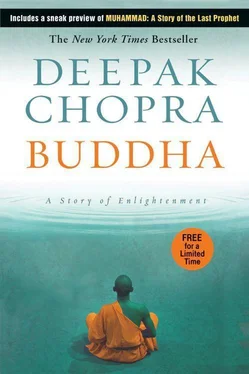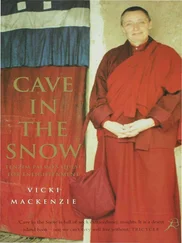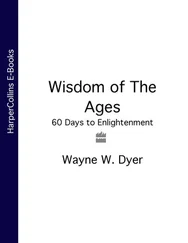Ananda, a monk around his own age of thirty-three, ran up. He looked vexed and excited. “Another miracle, brother. What should I do?”
Gautama frowned. “What marvel did I supposedly perform this time?”
“There’s a cripple just come to camp. Hobbled in on crutches, then he fell on his knees and called out your name. He gave a few twitches, and now he’s walking again.”
“Aren’t you impressed, Ananda? You’d think with all my powers I could prevent my feet from getting blisters when we walk down a rocky trail.”
Ananda was too exercised to smile. “He’s just one of those cheats who wants a free meal.”
“Don’t we give food to anyone? Even cheats?”
Ananda bit his tongue. No one was closer to Gautama in their travels, thanks to his sincerity about God and his total devotion to Gautama. Recently, though, the short, stocky Ananda, who exuded stubbornness as much as loyalty, had become like a sergeant or an aide de camp as more and more responsibilities fell Gautama’s way with the bikkhus.
“I think I know what to do,” Gautama said. He sat down by the central campfire on a rough-hewn bench. Whenever they stopped for any length of time the bikkhus bestirred themselves to build huts and stools and such from forest timber. “Feed him well. Then say that I need his crutches to help another lame man. If he hesitates to hand them over, tell him to come and personally tell me why. I imagine he and the crutches will both be gone in the morning.”
At last Ananda found a smile. “He’ll never hand them over. He needs them for his next miracle down the road.”
“I think so.”
Although he wasn’t the senior monk, Gautama had been relieved of chores around camp. He attended to the guru’s major affairs instead. “I wouldn’t burden you,” the guru said, “but you are cursed by your gift.”
“And what is my gift?” asked Gautama.
“The bikkhus think you’re their father.”
“Shouldn’t you be their father?”
The guru shrugged. “I already got rid of my curses.”
This master’s name was Udaka, and he was the second luminary Gautama had found in his wanderings. The first, who was named Alara, had been a quiet, reclusive scholar, a Brahmin but nothing like Canki. Alara paid no attention to caste. He immersed himself in the Vedas and wouldn’t bother to eat unless someone placed a plate of food beside his study table. When he first walked in, Gautama immediately attracted Alara’s attention. His head, bent close over a sacred text, whipped up, and his eyes squinted as if looking into a bright light.
Instead of saying hello, Alara asked a question. “Stranger, if the scriptures tell me to avoid violence, is it enough that I walk past a fight and not enter into it?”
Gautama, who was prepared to prostrate himself at the master’s feet to beg for instruction, was taken aback. He opened his mouth to say, “Tell me the answer, wise one,” but what came out instead was, “Merely avoiding violence shows virtue, but it shows much more virtue to help end the fight and bring the combatants to a state of peace.”
“Ah.” Alara looked pleased. He patted the rough plank floor next to him, signaling for Gautama to sit close by. He even shifted the small prayer rug that he occupied so that his new disciple would be more comfortable. The next two months were nothing like the silence Gautama had shared with the forest hermit. Alara was a gyani, or philosopher. He thought and he talked.
“What is the mind for if not to find God?” he said. “The scriptures assure us that this physical world is a mask, and yet the mask isn’t physical. It’s made of illusion, and illusion is created by the mind. Do you understand? What the mind has created, only the mind can undo.”
Gautama threw himself into a study of the Vedas, the ancient scriptures, and what Alara had said was holy writ. Every person has two selves, a lower self that is born of flesh and tied to the illusions of the material world, and a higher self that is eternal and unborn, with no attachments at all. The lower self craves pleasure, the higher self knows only bliss. The lower self cringes from pain, the higher self has never felt pain. If that was true, then Gautama had to find his higher self or be lost in the endless quicksand of the mind’s deceptions.
“You found me just in time,” said Alara. “Never mind that ordinary people are wasting their lives in foolish dreams of finding lasting happiness. To the ignorant, pleasure and pain appear to be different, but wisdom tells us they are the right and left hands of the lower self.”
For months Gautama focused on nothing else, praying, meditating, and studying to find a path to his higher self. It was not difficult to believe in the teaching of illusion, or maya, because he continued to see ordinary people as ghosts, weighed down with care and suffering. Alara also looked like a ghost, but there was no pain lingering around him. For his part, the old gyani had never met a pupil like this one, and every day he delighted in him more and more.
One day, however, a young man of about twenty came and sat beside the front door of Alara’s hut. He was thin, almost emaciated, and his face was one of the saddest Gautama had ever seen. As it happened, Alara stepped out of his hut just as Gautama was about to hand the young stranger a bowl of rice. With a swift, abrupt swipe, Alara knocked the bowl out of his hand, and the rice scattered on the ground. Before Gautama could speak, his master grabbed his arm and pulled him away.
“Don’t look back,” he said sharply.
Behind them Gautama heard the young man cry, “Father!” At this Alara’s neck stiffened, but he kept his eyes straight ahead. When they were out of sight of the hut he said, “Yes, he’s my son. I do not greet him or encourage him. You shouldn’t either.” Alara saw the baffled look in Gautama’s eyes. “My lower self once had a family. They are of no concern to me, just as this whole world is of no concern.”
“I understand,” said Gautama, lowering his eyes.
“No, Gautama, I can see you don’t. I have been on the verge of telling you that there’s little more I can teach you. But a true gyani must live what he’s learned. How can you hope to reach your higher self if you remain tied, even by the slightest thread, to this vale of illusion? Maya sets traps everywhere.”
Gautama didn’t argue. But he wondered, How would the sad young man at Alara’s door feel to know that he was an illusion, another trap to be avoided?
Two days later Gautama came into Alara’s room, but he didn’t take his accustomed place on the floor beside him. The gyani didn’t look up from the page. He said, “I’m almost sad that you’re leaving. That’s what you’re here to announce, isn’t it?”
“Yes.”
It could have ended there, simply, without a rupture. But Alara’s hand shook, and he threw down his scrolls. “Just who do you think you are?” he asked irritably.
“A disciple.”
“And since when does the disciple dare to teach the master?” Alara still hadn’t looked at Gautama, who could see the veins standing out in the old man’s neck.
“I didn’t mean to disturb you this way,” said Gautama.
“Insolence! I cannot be disturbed. You haven’t learned that by now?”
Gautama knelt on the floor without coming closer.
Alara was unable to disguise his cold fury now. “If I need a demon to shake my faith, I’ll call on a proper one, not a disciple who smiles and smiles, only to betray me.”
This outpouring of blame didn’t shake Gautama. He had lain awake thinking about how his master, for all that he knew about illusion, had fallen into a trap. The scriptures were his illusion. They led him to imagine that he was free just because he could describe freedom out of a book and think about it with his subtle mind.
Читать дальше












